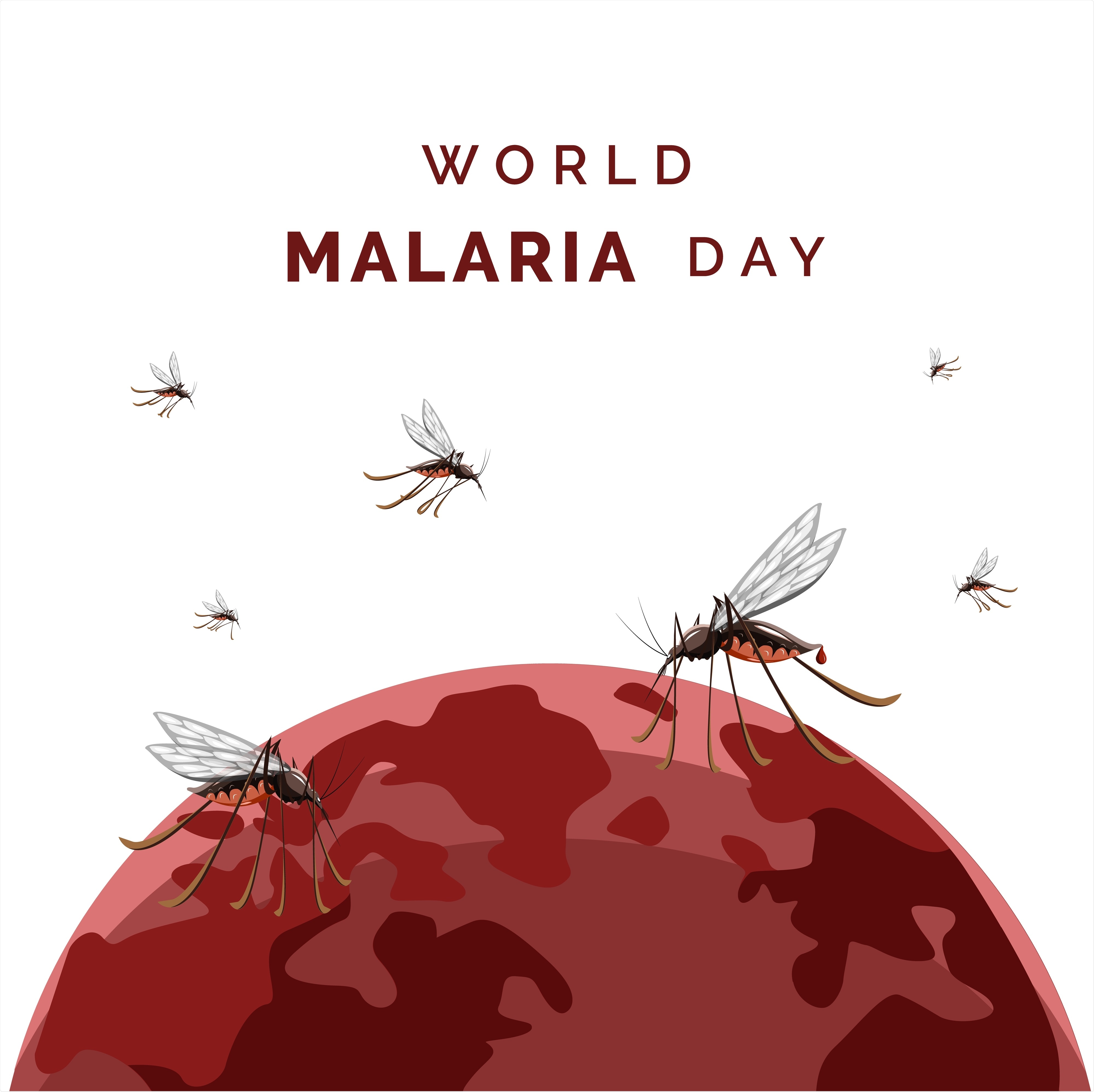Innovations and Strategies for a Malaria-Free Future in India
Malaria, an age-old scourge that has haunted humanity for centuries, continues to cast a shadow over global public health, with India shouldering a significant burden. Despite tireless efforts, barriers to effective prevention and treatment persist, perpetuating the cycle of transmission. However, amidst these challenges, innovative strategies are emerging, offering hope for a malaria-free future.
(World Malaria Day. Image Credit: Pena99 Vector/Shutterstock.com)
In a recent interview with HT Lifestyle, Dr. Susanta Kumar Ghosh, a seasoned expert formerly with the ICMR-National Institute of Malaria Research and now serving as Scientific Advisor at Eco BioTraps, shed light on the complexities surrounding malaria control in India. Dr. Ghosh underscored the fundamental challenge of addressing misconceptions and fatalistic attitudes towards malaria prevention and treatment prevalent in many endemic areas. Additionally, reliance on traditional remedies often delays seeking proper medical care, exacerbating the problem.
According to a 2024 study published in the Clinical Epidemiology and Global Health journal, India shoulders a staggering 79% of the global malaria burden in the southeast region. Factors such as meteorological conditions, environmental changes, and socioeconomic disparities all contribute to the intricate dynamics of malaria transmission in the country. Rapid urbanization, deforestation, and unplanned construction activities disrupt vector ecology, while weak disease surveillance systems further complicate control efforts.
Dr. Ghosh highlighted the importance of initiatives like the Tribal Malaria Action Plan in reducing parasite reservoirs and strengthening control services. However, achieving malaria elimination by 2030, as outlined in the National Framework for Malaria Elimination, remains a formidable task. The most recent National Strategic Plan: Malaria Elimination 2023-27 emphasizes the need to strengthen surveillance and action in outreach areas.
Central to any effective malaria control strategy is community engagement and awareness. Dr. Ghosh emphasized the role of informational campaigns in educating vulnerable populations about malaria symptoms, prevention methods, and the importance of timely treatment. By fostering community participation and collaboration with local authorities, the impact of control activities can be enhanced.
Insecticide resistance poses a significant challenge to malaria control efforts in India, with vectors like Anopheles culicifacies exhibiting resistance to commonly used insecticides. Dr. Ghosh advocated for innovative approaches such as biological control methods, including the use of ovitraps, which target mosquito breeding sites. These methods offer sustainable and environmentally friendly alternatives to chemical insecticides, helping to reduce the selective pressure driving insecticide resistance.
(Image: Ovitrap used to collect eggs of invasive Aedes species. (A) The female mosquitoes glue their eggs on the slat that is plunged into the water inside the flower pot. The slats were collected and inspected biweekly. Photo credit: Roland Schmid, Swiss TPH. (B) Slat with Aedes mosquito eggs. Photo credit: Christian Flierl, University of Basel. https://doi.org/10.1371/journal.pntd.0008705.g001 )Furthermore, understanding the socio-demographic determinants of malaria knowledge and practices is crucial for targeted interventions. Factors such as age, education, socioeconomic status, and locality influence individuals' ability to adopt preventive measures effectively. By addressing these disparities and tailoring interventions to specific population groups, the impact of malaria control efforts can be optimized.
In conclusion, the fight against malaria in India requires a multifaceted approach that addresses barriers to prevention and treatment, enhances surveillance efforts, and engages communities. With concerted efforts and innovative approaches, the goal of a malaria-free future is indeed within reach. It is imperative that stakeholders across sectors join hands in this crucial endeavor, as we strive towards a healthier and more resilient society.



Comments
Post a Comment